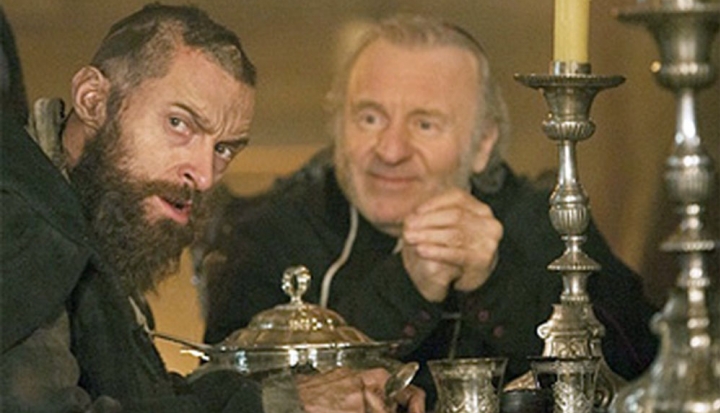Over the holidays my wife and I got a chance to see the movie version of Les Misérables. As I did almost a quarter century ago, when we saw the musical production here in Chicago, I again told myself: I really ought to read Victor Hugo’s novel sometime. Despite an opportunity for a productive New Year’s resolution, I have to admit that, given Les Miz’s 1,200-page length, that “sometime” is not likely to be anytime soon.
But I was struck again by the wonderful character of Bishop Charles-Francois-Bienvenu Myriel of Digne (in the French region of Provence), who has a key role in the novel as well as the musical. In fact, for the whole first of the novel’s five parts the bishop is apparently the main character of the narrative. But even in his much briefer cameo in the musical and movie, the bishop manages to inspire Jean Valjean—and the audience—with the way he lives out the gospel through welcoming the poor.
Patheos blogger Mark Roberts fills out some interesting background on the fictional bishop in Victor Hugo’s novel, whose story is based on the real Bishop François-Melchior-Charles-Bienvenu de Miolli, who was the bishop of Digne from 1805 to 1838 and who received his nickname “Bienvenu” (Welcome) because of his charitable hospitality and care for the poor.
So even if we may not get around to reading Hugo's venerable tome for a while, perhaps another New Year’s resolution would be even better: That the example of the bishop of Digne inspire us all to strive harder to live the gospel values of charity and hospitality this year and offer to others the good bishop's welcome to Valjean:
Come in sir for you are weary
And the night is cold out there
Though our lives are very humble
What we have we have to share
There is wine here to revive you
There is bread to make you strong
There's a bed to rest till morning
Rest from pain and rest from wrong








